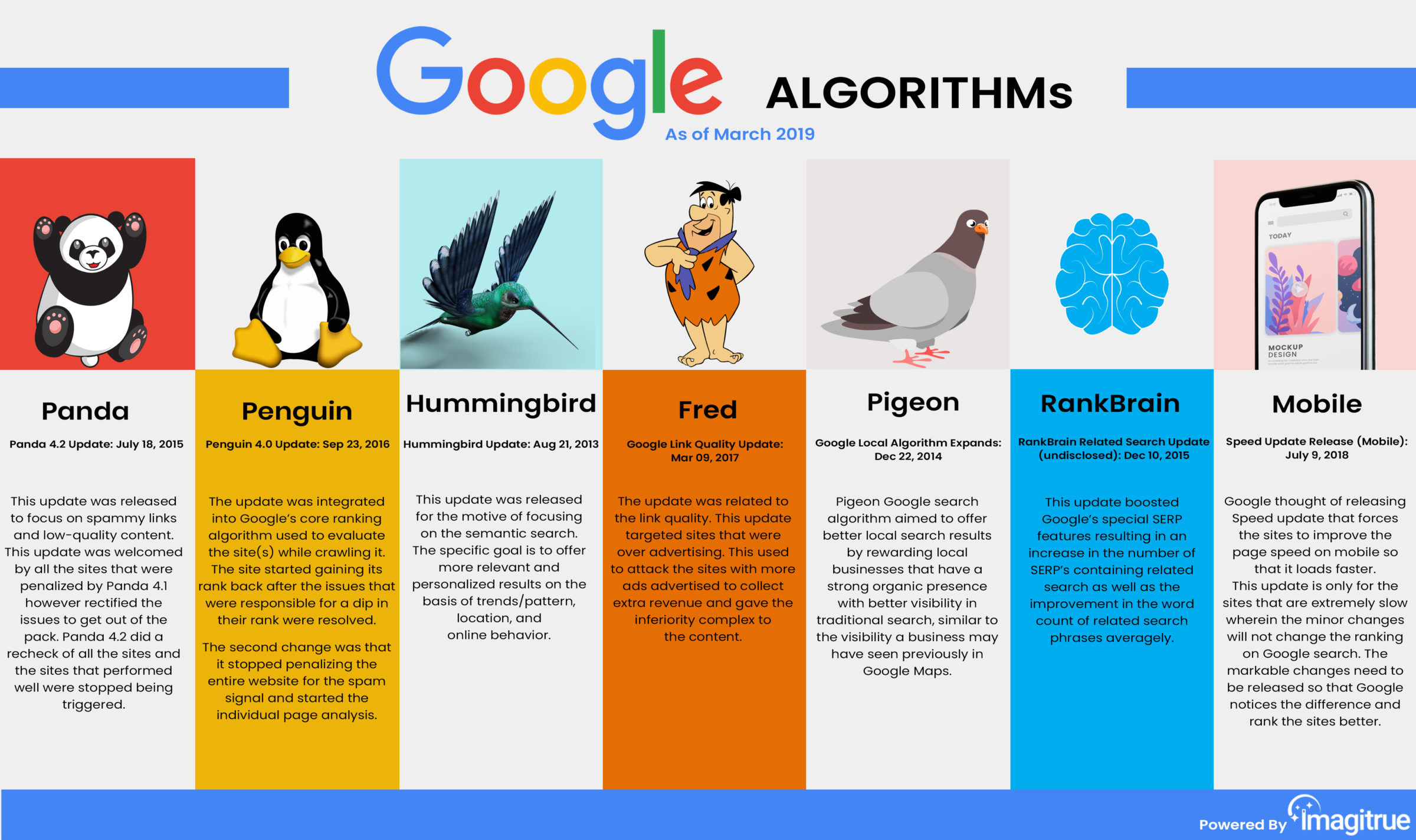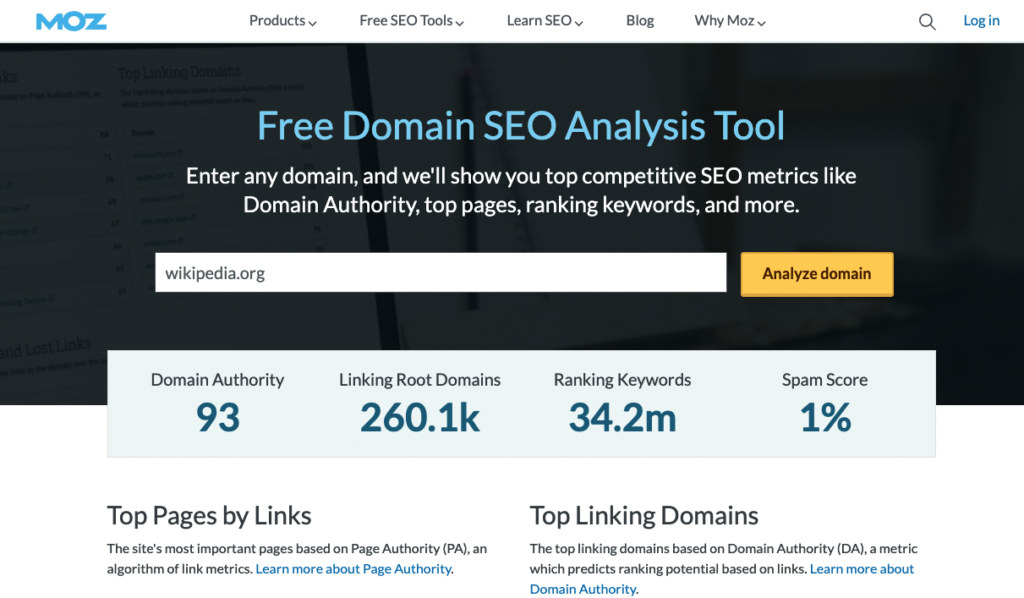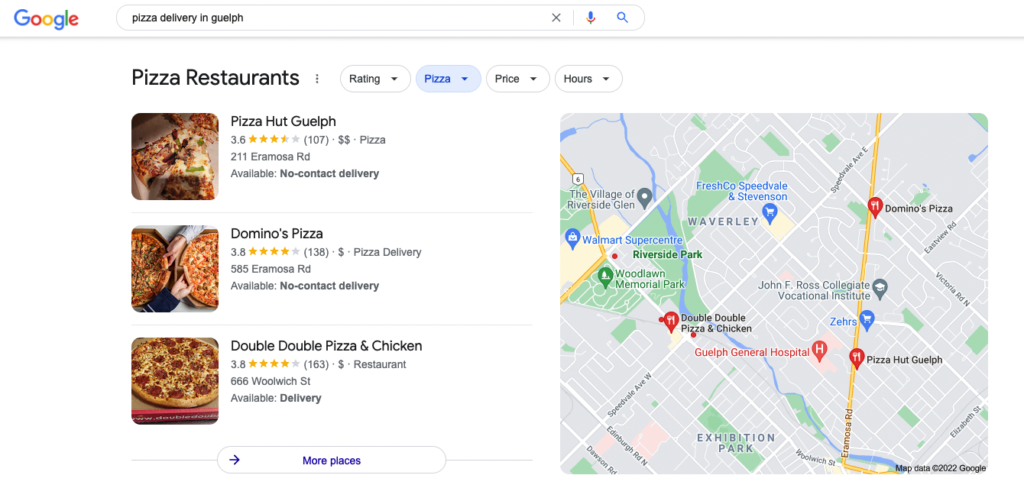Google, the world’s most popular search engine, has a complicated algorithm that determines how websites rank. What does this mean for you? It means if you want to be found online, it’s important to know what Google is looking for and how it ranks your site.
What Is Google’s Algorithm and How Does it Work
The Google algorithm is a complex system that determines how websites rank in search engine results pages (SERPs). The order of these pages is determined by the website content’s relevance to the user’s search query and a number of other factors.
Why is Google’s Algorithm So Important?
Google’s algorithm is so important because it is the top way people find information online. If your website doesn’t rank high in Google, it’s unlikely that people will find it, no matter how good it is. That’s why it’s important to understand how the algorithm works and optimize your website for the best possible ranking.
How Often Does Google Update Its Algorithm?
Google updates its Google search algorithm frequently, usually several times a year.
For example, one Google algorithm update was the “Google Panda” in 2015. The change aimed to lower the rank of low-quality sites, particularly “content farms,” and return higher-quality sites near the top. Another important update was the “Google Penguin” update in 2016, which penalized websites that engaged in spammy tactics such as keyword stuffing and link schemes.
More recently, Google pushed a more general spam core update that was rolled out from Nov 3 – 11, 2021.

In its early years, Google only made a handful of updates to its algorithms. Now it makes thousands of changes every year. Most of the time, they’re minor with no noticeable effects, but sometimes they roll out more important google algorithm updates.
Ranking Factors For Google Search results
We’ll highlight some key factors, but this isn’t an exclusive list. Google’s algorithm is complex, and its ranking strategy has many technical aspects.
Domain Authority
There are so many factors that go into how high you appear on google search results. One of the most important factors that Google considers when ranking websites is the website’s domain authority. This is determined by several factors, including the number and quality of links to the website from other websites. Otherwise known as backlinks. If your website has backlinks from pages with high authority – such as Google, Wikipedia, government pages or popular newspapers you will have higher domain authority.
You can check your domain authority by using the Moz tool.
Look at this example of the domain authority of Wikipedia, 93!

Another factor that determines domain authority is the age of the website. The older a website is, the more likely it is to be considered authoritative. The higher your authority, the higher you’ll appear on google search engine results.
Relevance
When a user types something into the search bar, “pizza delivery near me” Google’s spiders crawl each website and provide the user with the most relevant search results. When Google does this, it’s determining how well your website content matches up with the user’s search query. That’s why if you want to be ranking for “pizza delivery near me” you need to have the same keywords and relevant keywords that match up with that phrase. More on this later on.

Content
Content is a significant ranking factor. Without content, you have slim chances of ranking high on SERPs. The Google algorithm looks for websites with high-quality, relevant content. That’s why it’s crucial to add content to your website frequently. Websites that are updated frequently are seen as more relevant and trustworthy than those that are not. If you’re providing relevant and high-quality content with up-to-date information Google’s search algorithm will see it and increase your rank on search results.
You can improve your website’s ranking by regularly updating your content and ensuring that it’s well-written and informative. Google can also detect duplicate content and will penalize you for it.
Your content will also be the place where you will have your keywords. Which is what determines how relevant your content is to the user’s search query. Keyword density is an important factor, and you will need to make sure that all of your content contains the relevant keywords you wank to be ranking for.
User Location
Another key ranking factor that the Google algorithm considers is the user’s location. If a user types in “marketing agencies near me” then Google will give them websites and web pages that are in their area.
The Importance of Keywords
When it comes to ranking your website on Google, keywords are essential. You could say that keywords are one of the top key ranking factors. This is because they help Google understand what your website is about and determine whether it is relevant to the user’s search query. If Google can’t read what your website is about, don’t expect to be on the first page.
That said, it’s important not to go overboard with your use of keywords. Google can tell when a website is trying to “game” the system and penalize it. You want to have enough so that you can rank of Google SERP, but you also don’t want over-optimization.
Instead, focus on using keywords naturally throughout your website content. This will help you rank higher without risking penalties from Google.
You’ll want to spend some time doing keyword research. Find out which keywords are being searched for the most and are relevant to your business and target those. You can use tools such as Google Adwords Keyword Planner, SEMrush and Moz to help you find the right keywords for your website.
If you’ve never done keyword research before, read our blog that takes you through exactly what you need to do.
How To Rank Higher in The Search Engine Result Page
You can make a few changes to rank higher on search results.
1. Improve your On-Site SEO
What is on-site SEO? On-site SEO is the practice of optimizing your website’s content, structure, and URLs to improve its ranking on search engine results pages.
There are a few simple things you can do to improve your on-site SEO:
- Make sure all your pages have meta titles and meta descriptions that include your targeted keywords. Even better have your keywords at the beginning.
- Have a good page speed. The ideal page speed for most websites is 1-2 seconds. The better your site’s performance the more likely Google and other search engines are to recommend you.
- Make sure you have functioning URLs and no broken links. Also try to include your keywords in your URLs.
- Optimize your images with alt text and file names. Large images prevent your websites from displaying quickly and can create a poor user experience. Not to mention that Google can’t see images. So if you have multiple images on your webpage with no alt text, Google will have no idea what you page is about. My adding alt text to your images you’re providing context to Google.
- Have a mobile-friendly website. Deploy a “responsive web design” if possible. This ensures your website adjusts to any display size.
- You can also enhance your on-site SEO by using Yoast SEO for WordPress or All in One SEO Pack plugins. These plugins will help you optimize your website.
2. Upload High-Quality Content
If you aren’t already uploading content to your website, you should start immediately. Think of potential questions about your offerings and try, with your content, to answer those questions as fully as is necessary and as succinctly as possible. Blogging is a great way to stay up to date while easily generating new, relevant content.
We have multiple blogs that take you through the process of content creation; check them out below!
Here are some tips
- Don’t just start blogging to generate more traffic but give your users genuine added value.
- Don’t over-optimize your text by just adding in keywords nilliy willy. Instead take time to do keyword research and base your content around the keywords. Think about search intent and what problems people are trying to solve.
- Go on Google and type in different search terms and see what results pop up to give you an idea of what type of content is already out there.
3. Use Social Media to Distribute Content
Social networks play an important role in web use. Search engines take into account the traffic generated by links from social networks. It can be assumed that these links can influence a website’s ranking. Make sure your content can be easily shared across different social platforms.
Tools To Help You Monitor Your Progress
A few tools can help you track your progress in climbing the search engines.
Google Analytics
If you aren’t using google analytics, you should start using it immediately. It’s a great way to see how people find your website and how they interact with your content.
If you’ve never used Google Analytics, check out this beginner guide!
Google Search Console
Google search console is another excellent tool for tracking your progress. It’s a free service that you can use to monitor different aspects of your website and see what keywords people are searching for that make your website appear.
Read this blog if you want to learn how to use Google Search Console to its fullest!
Paid Tools
There are also paid tools such as Moz, Semrush, and SEO Surfer that can help you optimize your content and web pages. Some of them offer free tools, but you’ll need to pay to access all of their features and services for the most part.
Google’s complex algorithm is the backbone of any successful digital marketing strategy. Whether you’re trying to rank higher in search engine result pages or drive more traffic into your website, understanding how Google’s algorithm works can help you take control and get ahead. The tools we provide for tracking your progress are an excellent first step towards success!
